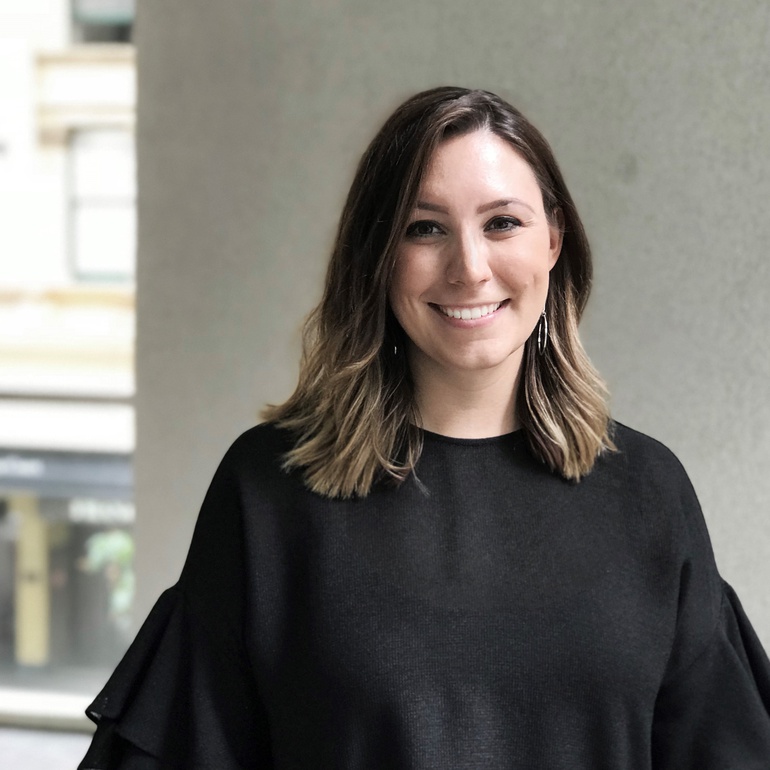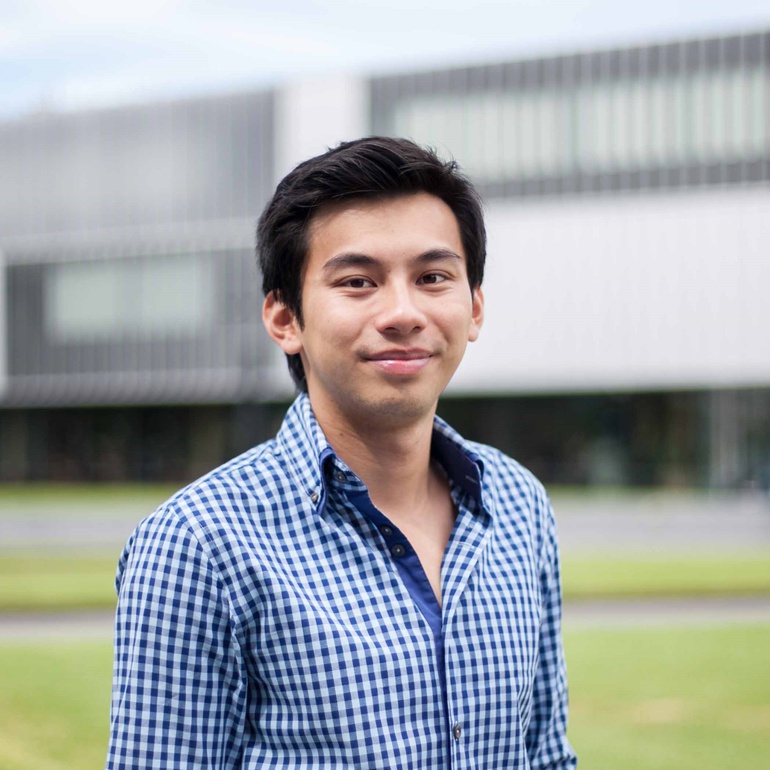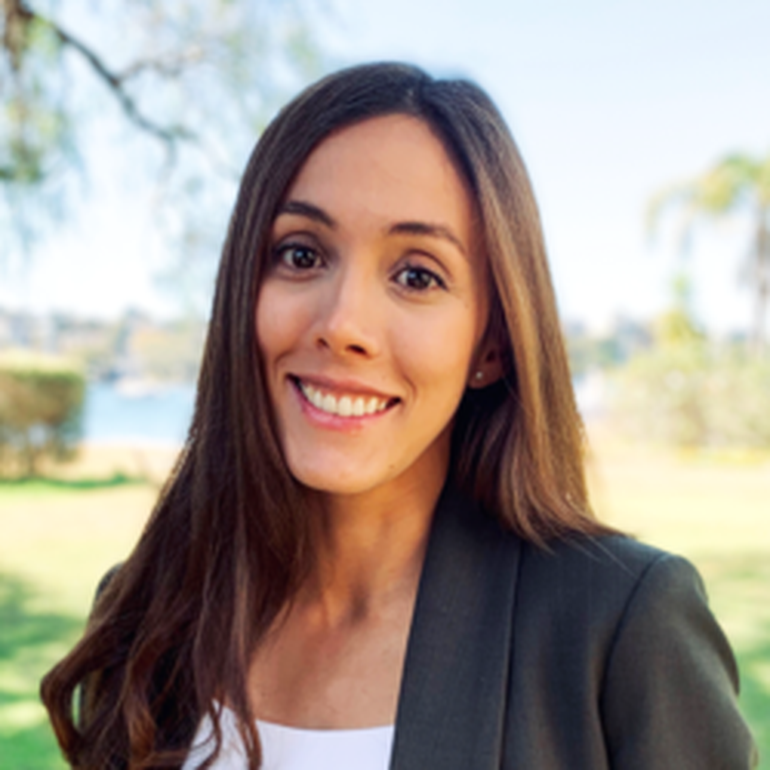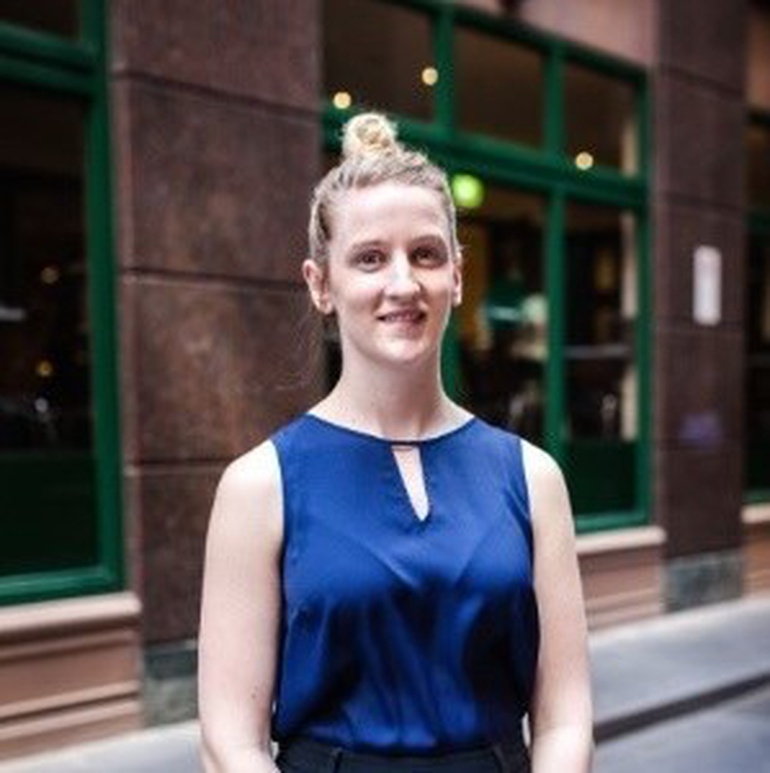Meet the Future Green Leader of the Year Award finalists
11 Mar 2021
Green Building Council of Australia is delighted to share the stories of the Future Green Leader of the Year Award finalists for 2021. This year we present a set of future leaders carving new paths in sustainability and ready to bring fresh ideas to drive change within the built environment. We look forward to announcing the Future Green Leader of the Year Award winner at TRANSFORM on 17 March.
Sarah Lawlor
Sarah is a senior architect at fjmt studio, working across education and commercial sectors from masterplanning and briefing through to project delivery and construction. Sarah has been involved in fjmt’s internal practice discipline of ‘Community,’ which focuses on consultation and placemaking.
The recipient of the National Association of Women in Construction (NAWIC) International Women’s Day Scholarship 2020, Sarah’s winning research project explored gender equity and diversity in sustainability leadership in the Australian built environment context.
“The way we view leadership is changing, especially as we tackle the joint crises of COVID-19 and climate change. The skills of sustainability leaders, typically purposeful, strategic and empathetic, have broken the mold and characterise an emergence of a new kind of leadership which is increasingly required,” says Sarah.
Sarah hosts the ‘Design Conscious’ podcast, a series which dives deeper into sustainability leadership, and an area that she says is experiencing a transformation, “sustainability leaders are provocateurs, and the change they are leading should feel uncomfortable, because profound change is necessary.”
Sarah is actively engaged in her profession and is currently co-chair of the Australian Institute of Architects NSW Chapter Editorial and Communication Committee and is a past member of the Institute’s Education and Research Committee. Sarah also teaches architectural design studio at University of Sydney, and recently tutored a studio exploring sustainable design in response to the climate crisis.

HY William Chan
HY William Chan is an architect and urban planner with over 10 years of experience designing for social and climate resilience. Elected to lead the World Economic Forum's Global Shapers in Sydney, William and his team drive solution building and community action for a green future and the next generations.
“With less than 30 years to limit climate change to 1.5°C, I’m passionate about investing in youth – our future ‘green’ leaders. This has led me to a career in sustainability through design practice, advocacy and education,” says William.
William has designed for Cox Architecture, Hassell, and Arup Foresight and Innovation. At Cox he served on the Board of Management Design Committee and led the firm’s first global Sustainability Agenda. Other leadership appointments include the National Council of the Australian Youth Climate Coalition, Smart Cities Council jury, and UN Fellow in Sustainable Cities.
William has consulted on green built environment policymaking for the Australian Government (Environment), NSW Government (Planning, Industry and Environment), and City of Sydney as a 2050 expert. A researcher at Columbia University’s Center for Sustainable Urban Development, William has addressed the UN General Assembly, Venice Architecture Biennale and presented a TED talk.
William says that though 2020 was disruptive for the built environment, ripples of inspiration are surfacing, “Despite the existing breakdown of environmental systems, and its social and economic consequences, being exposed over the past year, young people are ambitiously creating solutions. Now’s the time to safeguard our future and for the next generations to come!”

Tatiana Schonhobel
Tatiana is a creative designer with a vision to transform cities. She is deeply inspired by the opportunity to rethink our urban habitat and to rebalance the built and natural systems in cities, she adds there’s no time for delay and this is what motivates her day-to-day.
“I’m excited to see the shift toward a circular economy and how concepts such as donut economics and planetary boundaries are integrated into our thinking moving forward,” says Tatiana.
Tatiana has experience in the implementation of sustainability strategies for the built environment: delivering advisory, analytics and certification services globally. Highlights in her current role as a Sustainability Consultant at Integral Group are the delivery of design analytics for urban renewal with one of the largest tech companies in the US, and her involvement in the sustainability strategy for major precincts in Sydney. Tatiana is also supporting a global collaborative project for portfolio resilience across Canadian government property assets.
Her vision and practice build upon previous roles in façade engineering, social housing (U.S. Department of Energy Solar Decathlon® Latam), and emerging markets experience as operations manager of a premium boutique building in her hometown in Colombia.
Tatiana believes that humanity is facing its biggest challenge yet and that now is time to raise ambition, “I believe our answers to the big systemic challenges lie in the integration of new technology with the deep patterns of sustainable systems. I’m excited to see the shift toward a circular economy and how concepts such as donut economics and planetary boundaries are integrated into our thinking moving forward.”

Kate Rowan
Kate Rowan is a young sustainability professional with over five years’ experience in major infrastructure projects, currently driving long-term change as a Sustainability Advisor on the Metro Tunnel Project in Melbourne.
An emerging leader in the social sustainability space, Kate is most passionate about creating measurable, socioeconomic change in the built environment.
During 2020, Kate implemented a Social Return on Investment (SROI) study which measured the value of three of the Metro Tunnel Project’s social sustainability programs. This world-first initiative was independently assured by Social Value International, and awarded the following accolades by the Social Impact Network of Australia:
- Winner of ‘Outstanding Collaboration In Social Impact Measurement’
- Runners-up of ‘Innovation in Social Impact Measurement
Kate believes that social sustainability improves diversity and inclusivity in the workforce and will be critical in addressing future challenges facing the built environment sector, “If selected as Future Green Leader, I hope to lead, educate and inspire the building industry to investigate how it creates social value, and implement programs that create real change for people and places.”
Outside of work, you can find Kate cheering on the Geelong Cats in AFLW and AFLM footy matches or catching up with friends at a brewery.

Each of these finalists has contributed to further sustainability practices within the built environment and we are so proud of their accomplishments. We look forward to watching your careers flourish and working with you to bring your ideas alive helping to lead the transformation of our industry.
Are you attending TRANSFORM? We're announcing the winner on day one.